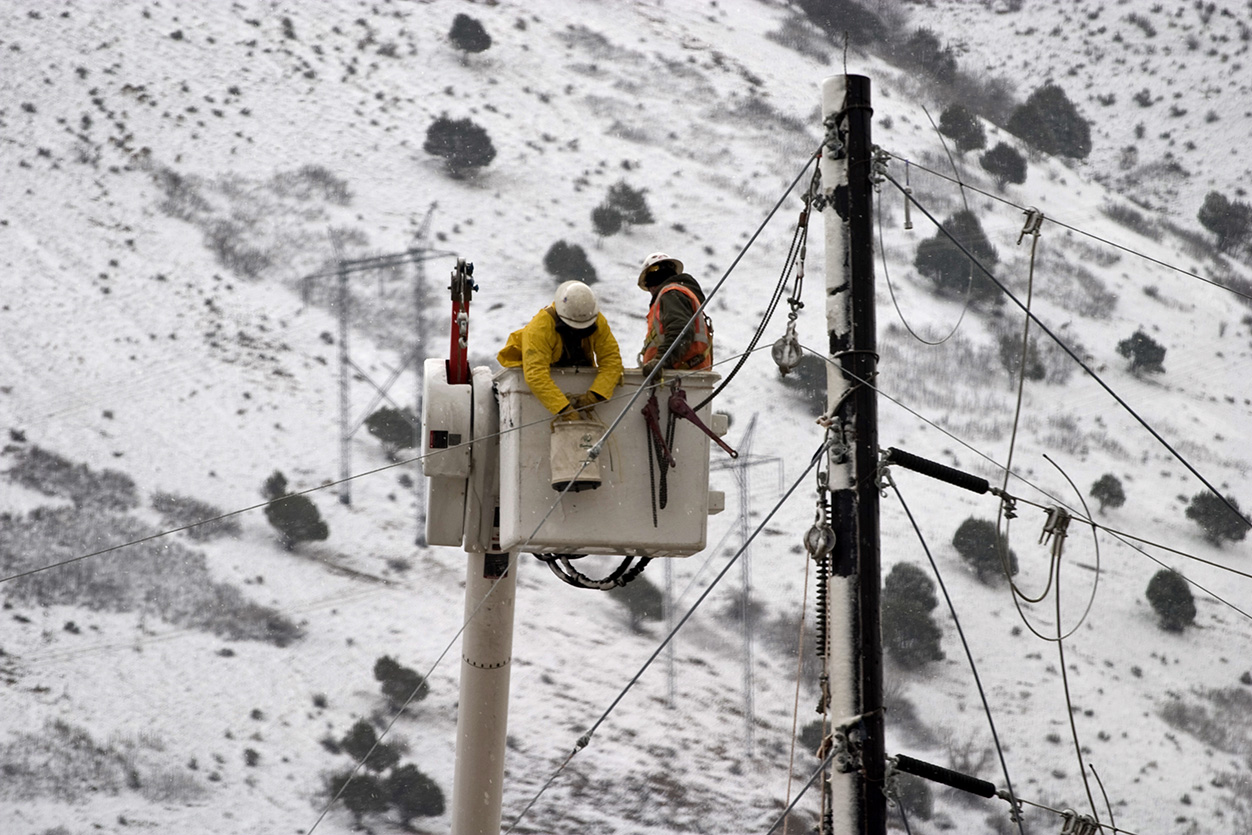Storm Surge? A Flood of Lawsuits After the Texas Freeze

When winter storms created a state of emergency in all of Texas’ 254 counties, causing the lights, water, and heat to go out when they were needed the most, many Texans began looking for someone to blame. The Electric Reliability Council of Texas (ERCOT) has become the favorite scapegoat of the moment. In the days since Texas began to thaw out, several lawsuits have been filed against ERCOT, ranging from class-actions to a wrongful death suit regarding an 11-year old boy who died of hypothermia in his own home. With the spotlight on ERCOT more than ever, questions have been raised about the relatively unknown organization: What is ERCOT? What does it do? Can it be sued or does it have immunity from suit? The answer to some of these questions are as unsettled as the weather.
What is ERCOT?
ERCOT is, somewhat non-intuitively, a 501(c)(4) non-profit corporation. Its existence began in 1970 as part of a series of initiatives to improve the entire grid system of the United States. It operates like any other non-profit, in that it has a CEO and a Board of Directors to take care of day-to-day operations. However, ERCOT is unique in that it manages the Texas’s, famously the only grid system in the country that is entirely within one state.
ERCOT is regulated by the Texas Public Utilities Commission (PUC), the governmental agency responsible for regulating water, electricity, and telecom utilities, and by the Texas Legislature. Within the regulatory scheme that Texas has set up, ERCOT plays the role of the Independent System Operator (ISO). Although ERCOT was the first ISO created, there are eight others across the country.
As an ISO, ERCOT has little discretion in what it does. It can only do what the PUC and Legislature mandate it can do. This strange gray zone, simultaneously being a non-governmental, non-profit and being regulated completely by the government, places ERCOT in a quasi-governmental role that has not been completely defined by Texas courts.
What does ERCOT do?
ERCOT states that its four primary responsibilities are to: “Maintain system reliability,” “Facilitate a competitive wholesale market,” “Facilitate a competitive retail market,” and “Ensure open access to transmission.” The historical reasoning behind ERCOT shouldering these responsibilities in beyond the scope of this article, but ERCOT has been assuming these tasks since 1995, when Texas’ electricity market began to be deregulated and privatized. Accordingly, much of what ERCOT does is related to ensuring that the electricity market in Texas runs smoothly, with many comparing their day-to-day activities to that of an auctioneer who sets efficiently facilitates transactions between operators, consumers, generators, and other parties with roles in the electricity market. Some have compared their role and structure to that of the NYSE, another non-governmental, but highly regulated non-profit.
In order to facilitate its auctioneering, ERCOT provides estimates of power demand and supply, months and years in advance of when the power actually is needed. This allows for current and prospective electricity market participants to decide how to navigate this complex market and helps ERCOT to plan the schedule of power transfers to areas as needed. However, as mentioned above, ERCOT is constrained by the PUC in most of its activities and its statutorily authorized power limits its ability to take independent actions. In this context, ERCOT’s liability for its actions becomes fuzzy.
ERCOT v. Panda
In 2011 and 2012, Panda, a power generator, saw ERCOT’s estimates for future demand and decided to build three new power plants for $3.3 billion. Unfortunately, the demands proved to be inaccurate and Panda decided to sue ERCOT, testing ERCOT’s sovereign immunity for the first time. In 2018, the Dallas Court of Appeals held that ERCOT was entitled to immunity.
The Dallas Court of Appeals agreed with ERCOT’s argument that ERCOT’s duties, structure, and regulated status entitled it to benefit from the “nature of purposes of sovereign immunity.” In particular, ERCOT argued and the Court agreed that ERCOT was not akin to an independent contractor to the State, but instead had a statutorily defined role that limited ERCOT’s functions and authority.
The Court applied a broad standard to the types of behaviors that might warrant immunity, leaning heavily on federal cases regarding self-regulatory organizations (like the NYSE), and allowing immunity for any activity that is “in connection with the discharge of their regulatory responsibilities” and “incident to the exercise of regulatory power.”
Panda has appealed the Dallas Court of Appeals’ decision to the Texas Supreme Court, which it is set to hear arguments this year. The outcome of this case will have huge implications for the recent spate of lawsuits filed against ERCOT arising from the Valentine’s Freeze, something that will not likely be lost on the Justices when they hear oral arguments.
Our attorneys in Dallas and Austin are available to answer any questions you may have. Please contact us at info@gstexlaw.com.
Legal Disclaimers
This blog is made available by Gerstle Snelson, LLP for educational purposes and to provide general information about the law, only. Neither this document nor the information contained in it is intended to constitute legal advice on any specific matter or of a general nature. Use of the blog does not create an attorney-client relationship with Gerstle Snelson, LLP where one does not already exist with the firm. This blog should not be used a substitute for competent legal advice from a licensed attorney.
©Gerstle Snelson, LLP 2021. All rights reserved. Any unauthorized reprint or use of this material is prohibited. No part of this blog may be reproduced or transmitted in any form or by any means, electronic or mechanical, including photocopying, recording, or by any information storage or retrieval system without the express written permission of Gerstle Snelson, LLP.

